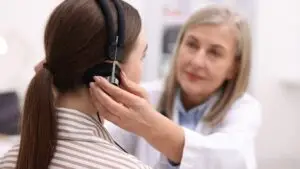“Finding Strength in Support”
“Addiction is not a sign of weakness. It’s a health condition that millions of people face, and recovery is absolutely possible with the right support.”
For those caught in drug use, daily life can feel like a battle. Substances start to dictate choices, strain relationships, and erode self-confidence. What may have begun as experimentation or a coping mechanism quickly turns into a cycle of craving, use, withdrawal, and regret. The burden of shame often makes people think they should be able to quit on their own, yet the harder they try, the more hopeless it feels.
At Bleuler Psychotherapy Center, Inc., we understand that recovery is not just about willpower. Healing from addiction requires compassion, professional guidance, and structured support. Through our drug treatment program, we help individuals not only stop harmful behaviors but also rebuild lives filled with stability, connection, and purpose.
It is important to clarify: Bleuler is strictly an outpatient facility. We do not provide residential or inpatient programs, nor do we offer in-house detox or medical stabilization. If a client needs detox before starting outpatient care, we give referrals to trusted external providers. Once stabilized, individuals can join us for outpatient therapy where long-term healing takes root.
Substance use services, including drug use treatment, are available at our Forest Hills location and through telehealth. Psychiatric services, which often support recovery from co-occurring conditions, are available at both our Forest Hills and Jackson Heights locations, as well as virtually.
Understanding Drug Addiction
A Brain Condition, Not a Moral Failing
Addiction changes the brain’s reward system. Substances flood the brain with dopamine, creating false highs that reinforce drug use. Over time, the brain craves more, making abstinence increasingly tough.
This is why addiction is seen as a medical and psychological condition, not a weakness of character. Anyone can be affected, students, professionals, parents, or retirees.
The Cycle of Addiction
– Craving: The brain demands the substance.
– Use: Short-term relief provides temporary calm or euphoria.
– Withdrawal: Physical and emotional symptoms drive the cycle forward.
The Consequences of Untreated Addiction
– Physical: Damaged organs, weakened immunity, higher risk of overdose.
– Emotional: Guilt, depression, anxiety, and loss of self-worth.
– Social: Conflict with family, job loss, isolation.
– A compassionate reminder: Addiction can happen to anyone. Seeking help through drug treatment is not failure; it is a courageous step toward freedom.
Why Professional Outpatient Treatment Matters
Trying to quit on your own rarely works. Triggers are everywhere: a stressful day at work, a familiar neighborhood, or a moment of loneliness. Without guidance, relapse often occurs, reinforcing feelings of despair.
What Outpatient Care Provides
– Therapy that digs deeper: uncovering trauma, stress, or mental health issues that fuel substance use.
– Structure and accountability: regular appointments keep recovery on track.
– Flexibility: individuals can continue work, school, and family life while receiving treatment.
A Clear Distinction
Bleuler does not provide detox or inpatient programs. If detox is necessary, we refer clients to external facilities before they begin outpatient therapy with us. This ensures that individuals are medically safe before engaging in psychological and emotional healing.
Busting the Myths
– “I should be strong enough to stop on my own.” Addiction is a health issue, not about strength.
– “Detox is enough.” Detox clears the body, but outpatient treatment heals the mind and spirit.
Key Approaches in Outpatient Drug Treatment
At Bleuler, we offer drug addiction treatment designed to treat the whole person. Services are available at our Forest Hills office or through telehealth for accessibility and convenience.
Cognitive Behavioral Therapy (CBT)
CBT helps individuals recognize harmful thought patterns, such as “I can’t handle stress without drugs.” In therapy, clients can replace these beliefs with healthier, more realistic ones.
Group Therapy
Group sessions remind clients they are not alone. Sharing experiences builds accountability and encourages peers who understand the challenges of recovery.
Family Therapy
Strengthen Your Relationship Today
Take the first step toward a healthier, more fulfilling partnership. Speak with one of our specialized couples therapists in Queens.
Drug use often fractures families. Outpatient family therapy creates space for honest conversations, forgiveness, and new ways of supporting one another.
Medication-Assisted Treatment
For some, medications play a role in recovery. While Bleuler does not prescribe directly, we work with prescribing providers to ensure treatment is well-coordinated.
Holistic and Supportive Practices
Long-term success requires lifestyle changes. We integrate:
– Mindfulness for stress reduction.
– Healthy routines such as exercise and sleep habits.
– Stress management tools that replace substance use as coping mechanisms.
How Outpatient Treatment Supports Long-Term Recovery
Recovery isn’t just about avoiding drugs; it’s about creating a life that feels stable and fulfilling.
Skills for Stability
– Coping mechanisms to handle cravings without relapse.
– Identifying triggers so clients can avoid or prepare for risky situations.
– Relapse-prevention plans to act as safety nets when challenges arise.
Rebuilding Daily Life
– Work and independence: Many gain confidence in their jobs or pursue education.
– Relationships: Families learn to trust again through openness and accountability.
– Self-care: Routines focused on sleep, nutrition, and exercise build resilience.
Clients often find that with outpatient support, recovery becomes not just about abstinence but about building something worth protecting.
Emotional Healing and Self-Rediscovery
Drug use often hides deeper pain, grief, trauma, or unaddressed anxiety. Outpatient therapy provides space to face those emotions safely.
Rediscovering Life Beyond Addiction
– Values: Identifying what truly matters helps guide choices in recovery.
– Goals: Clients reconnect with hobbies, passions, or careers.
– Purpose: Recovery becomes about creating a meaningful life, not just avoiding drugs.
We’ve seen transformations that prove healing is possible. Someone once consumed by hopelessness can, through drug addiction treatment, rebuild a future filled with possibility and pride.
Hope and Encouragement
Recovery is not a straight line. Some days feel easier, while others feel overwhelming. But every step matters. A setback does not erase progress; it’s part of the learning process.
What We Tell Clients Often
– Healing takes time.
– Progress may be slow, but it is real.
– Outpatient support ensures no one has to walk this path alone.
Choosing drug use treatment is a powerful act of self-care. It signals not only the desire for sobriety but also the commitment to a healthier, fuller life.
Conclusion: Building a Brighter Future
Addiction may feel overwhelming, but it does not have to define a person’s future. With outpatient drug treatment, individuals can break cycles of dependency, heal relationships, and reclaim their lives.
At Bleuler Psychotherapy Center, Inc., we are here to provide steady, compassionate outpatient support. If you or someone you love is struggling with drug use, help is available at our Forest Hills location and through telehealth. Psychiatric services are also available at both Forest Hills and Jackson Heights, along with online options, ensuring full support for co-occurring needs.







